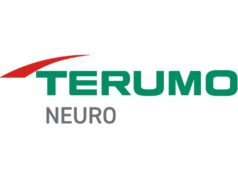
Two of Atlanta’s stroke centres, associated with Emory University School of Medicine, have joined NICO (Neurosurgical Intervention Company) to perform a randomised controlled trial evaluating the clinical effectiveness of early surgical intervention using BrainPath following spontaneous intracerebral haemorrhage (ICH).
The Emory Stroke Center of Emory University hospitals and the Marcus Stroke & Neuroscience Center of Grady Memorial Hospital will lead the trial, ultimately comparing the outcomes between early intervention using atraumatic access with BrainPath for fluid evacuation and a medically managed cohort.
This trial will build on current peer-reviewed clinical data on the BrainPath Approach including the results of a multi-centre pilot study presented at the 2015 International Stroke Conference. The study was on the safety and efficacy of haematoma evacuation using a trans-sulcal surgical approach with BrainPath and showed “statistically significant” improvement in patients’ neurological state associated with early intervention. This improvement was reported in 35 patients at 10 centres with outcomes showing 89% clot evacuation and no new surgical deficits or deaths and was cited as a breakthrough in the treatment of haemorrhagic stroke by the National Stroke Association.
“This randomised trial will allow us to produce prospective data documenting the best course of action for patients we treat with this very deadly form of stroke,” says Dan Barrow, chairman of neurosurgery, Emory University. “It underlines our commitment to partnering with other institutions in establishing a standardised minimally invasive approach and contributing to establishing a new standard of care for ICH patients.”
The BrainPath device is used to access the haemorrhage site by navigating through the delicate folds and fibre tracks of the brain, displacing brain tissue as it creates a corridor to the haemorrhage site and evacuate the clot, all through an opening the size of a US dime. More than 300 neurosurgeons, residents and fellows have been trained on BrainPath and more than 2,500 BrainPath procedures have been completed at over 60 institutions throughout the United States since the device became commercially available three years ago.
“I have performed over 50 procedures using the BrainPath to access these bleeds,” says Gustavo Pradilla, chief of neurosurgery, Grady Memorial Hospital. “My early experience is encouraging and I am hopeful the results of this trial, in addition to the growing body of clinical evidence, will provide a new standard for better outcomes for these patients.”
The trial will include up to 10 centres and will begin in 2016 with approximately one year for patient enrolment and six months of patient follow-up. Ideal trial candidates are spontaneous supratentorial ICH patients with a good clinical chance of benefiting from the surgical treatment based on well-defined criteria for study enrolment.
“It is encouraging that recent ischaemic stroke trials have shown clinical success with mechanical technology for the removal of clots. We want to provide the same level of research and validation for treatment protocols for our ICH patients,” says Michael Frankel, chief of neurology, Grady Memorial Hospital, and professor of neurology at Emory. “This study could contribute to revolutionising the standard of care for this high-risk patient population.”










